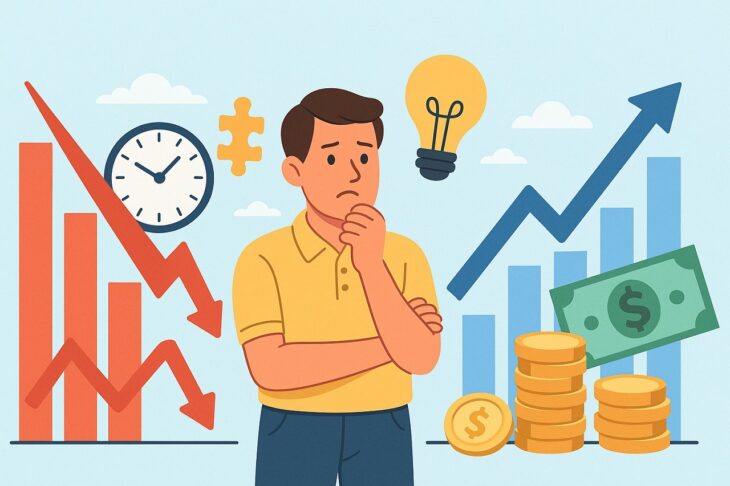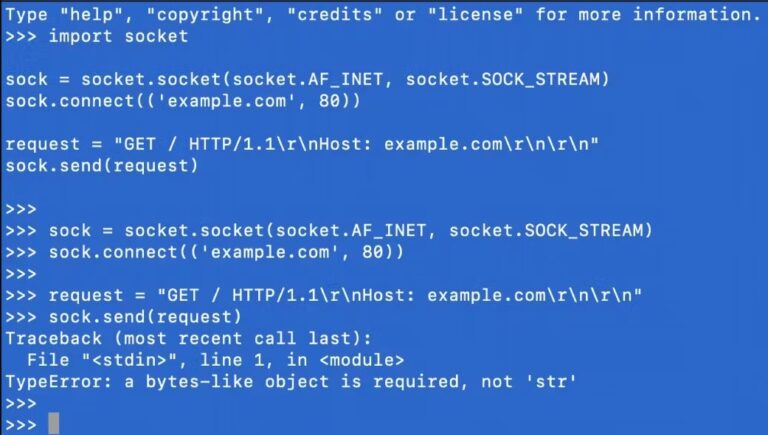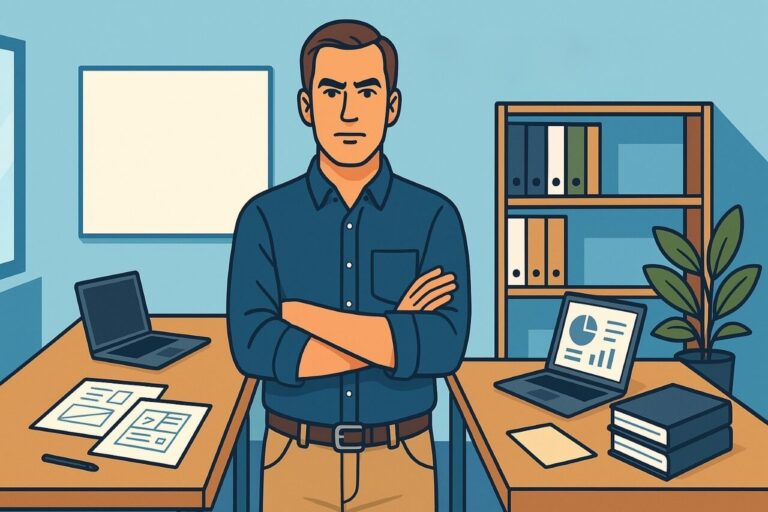It doesn’t matter how polished your business plan was or how confident you felt when you signed that lease or launched your first product – nothing slaps harder than your first real crisis.
One day, you’re watching sales roll in and scheduling team meetings. What’s next? Your supply chain is broken, your inbox is full of refund requests, and you’re staring down the kind of situation that turns stomachs.
Welcome to the defining moment that almost every business owner faces sooner or later. It doesn’t matter if it’s a brutal economic downturn, a social media firestorm, or a pandemic that halts the world overnight, those first real bumps in the road teach lessons no MBA class can cover.
Let’s talk about what those lessons actually are. The real ones. The ones that keep you up, shape how you lead, and change the way you do business forever.
You Can’t Fake Communication When Everything’s Falling Apart

When the pressure’s on, people can smell corporate spin from a mile away. That’s why one of the first gut-punch realizations during a crisis is that communication has to be clear, fast, and – above all – human.
If you don’t speak up early, you lose the ability to steer the narrative. That’s not just a PR thing. It’s customer trust, employee morale, supplier confidence – it’s everything.
Slack nailed this when their platform went down for 18 million users. Instead of hiding behind silence, they launched a dedicated site and posted updates every 30 minutes. Not only did it keep users calm, but it also showed ownership and respect.
Now compare that to Better.com, where the CEO laid off 900 people in a Zoom call that was – let’s just say – emotionally tone-deaf. Add a leaked recording with some callous comments, and the brand damage exploded overnight. It’s not just what you say; it’s how you say it. And sometimes, it’s knowing when to bring in someone else – like a trained spokesperson or legal advisor – to say it better.
Also: don’t forget your own team. Businesses that survived COVID with their culture intact? They were the ones that over-communicated internally – policy updates, safety info, honest status checks. It wasn’t always easy, but it made people feel included instead of expendable.
If You Don’t Have a Plan, You’re Already Behind

Crises have a brutal way of exposing what you haven’t prepared for.
A study shared in Harvard Business Review found that after major recessions, about 17% of public companies completely failed – bankruptcy, buyouts, closures. But 9% didn’t just survive; they actually thrived – posting profits and growth while others floundered. Why? One major factor: they had contingency plans.
For small businesses, it might not be a thick binder with flowcharts. It might just be a list on a whiteboard – who to call, what to say, what the backup plan is if revenue drops 40% next month. But having something beats flying blind.
And yes, cash matters. A lot. Business advisors often suggest having 3 to 6 months of operating capital tucked away for emergencies.
When revenue hits zero for a week – or a month – that cushion buys you options. And peace of mind. Some business owners even consult legal and financial teams like Friedman Law to help structure that cushion.
Customers Notice Who Showed Up for Them

One of the fastest ways to lose loyalty during a crisis? Ghosting your customers.
A hiccup in service or a botched order isn’t usually what breaks the bond. It’s being silent. It’s brushing off concerns. It’s acting like the problem is theirs, not yours.
Take Ticketmaster’s crash during the Taylor Swift Eras Tour ticket sales. It wasn’t just that the site went down – it’s that communication was slow, confusing, and, to many fans, dismissive. That level of chaos hits harder when people already feel like numbers instead of valued customers.
View this post on Instagram
A post shared by Tyler Chou | The Creators’ Attorney (@thecreatorsattorney)
Now compare that to brands that owned their slip-ups, offered refunds or perks, and apologized like they meant it. Even Pepsi, after their widely criticized 2017 ad campaign, didn’t double down. They pulled the ad, said sorry, and let the dust settle.
Business owners quickly realize that a heartfelt refund or a comped service now can earn a customer’s trust for years to come. Crisis or not, people remember how you made them feel.
The Numbers Don’t Lie, But You Might Be Ignoring Them

No one wants to admit they were operating too lean or too leveraged before a crisis hit. But if you were skating by on hope and high-interest loans, a crisis has a way of pulling that curtain all the way back.
During the COVID-19 shutdowns, businesses with heavy fixed costs and no wiggle room in their budgets were the first to fold. Those that had diversified income, kept debt manageable, and built flexible expense structures had room to breathe – and pivot.
Financially healthy businesses:
- Keep a reliable reserve of liquid cash
- Avoid overdependence on one customer or product
- Build in variable expenses where possible
- Know their legal obligations when the worst hits
Legal clarity matters too. Saying “no comment” when you should be guiding your narrative can land you in hotter water.
MSG Entertainment found itself in headlines for using facial recognition tech to ban an attorney from a show. But instead of dodging, they leaned on existing policies and explained their reasoning – backed by actual legal support.
Business owners learn fast: good legal advice isn’t a luxury. It’s a safety net.
People Matter More Than the Bottom Line (and the Market Rewards That)

It’s easy to preach company values in a good year. The test comes when things get hard.
During the early days of COVID, family-run businesses were among the first to skip dividends so they could keep paying employees. That long-term view paid off.
Many of them outperformed peers when the stock market came roaring back. Loyalty works both ways.
ESG scores – environmental, social, governance – aren’t just buzzwords, either. Companies with higher scores saw stronger returns during downturns and recoveries. Turns out, customers and investors notice when a business treats people and the planet with care.
Even if you’re a two-person team, the takeaway still applies: the people around you matter. Employees, partners, freelancers, customers, even the neighborhood coffee shop that fuels your team, treating them well when it counts, builds real-world capital.
Real Crisis Stories That Leave a Mark
Sometimes the best way to get better is to watch someone else blow it – or knock it out of the park.
Here’s a quick breakdown of some standout crisis moments from recent years and what they taught business owners:
| Company | What Happened | Key Lesson |
| Better.com | Zoom firings + leaked negative audio | Delivery matters – especially in hard conversations |
| Slack | Major outage for 18M users | Keep people updated with one clear voice |
| Tyson Foods | CFO arrested for intoxication/trespassing | Own your mistakes – then pivot to strengths |
| Ticketmaster | Website crash during Swift ticket sales | Communicate proactively and don’t delay |
| MSG Entertainment | Banned attorney using facial recognition | Stick to policies, and explain them clearly |
Netflix also deserves a mention. Back in the 2008 recession, while others were slashing budgets, they doubled down on digital streaming, anticipating what customers would want next. That bet paid off big. The lesson? Crisis doesn’t just test survival, but vision.
A Crisis Hurts. But It Leaves You Sharper
Here’s the thing no one tells you: your first crisis will probably rattle you. You’ll make mistakes. You might lose money. You might lose sleep. But you’ll also come out of it with the kind of insight you can’t buy.
After facing a major crisis, most business owners start doing a few things differently:
- They write things down. No more assuming someone “knows what to do” when things go south.
- They stay closer to their numbers. Weekly cash flow checks. Real-time sales dashboards. No more flying blind.
- They build relationships before they’re needed. Bankers, lawyers, insurance brokers, vendors – better to have their number saved before disaster hits.
- They slow down and ask better questions. Not just “How do we survive?” but “What are we not seeing right now?”
Final Words
Crisis changes how you see your business. What once felt unshakable suddenly feels fragile. But that shift in perspective? It’s where real growth starts.
Business owners who’ve weathered the storm usually don’t get cocky afterward. They get serious. They invest more in people. They spend differently. They communicate better. They plan like they never want to feel that unprepared again.
And most importantly, they realize they’re not alone. Every crisis leaves a mark. But it also leaves tools, instincts, and stories that make you stronger the next time around.
Because yes, there probably will be a next time. And when it comes? You’ll be ready.


